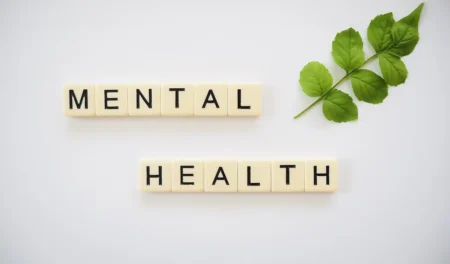 In today’s fast-paced and increasingly interconnected world, the importance of mental health cannot be overstated. Our mental well-being affects every aspect of our lives, from how we think and feel to how we handle stress and relate to others. Despite its significance, mental health often takes a backseat to physical health, leading to a range of issues that can profoundly impact an individual’s quality of life. Understanding why mental health is so crucial and recognizing the current challenges people face can help us take steps to support and improve mental well-being for ourselves and those around us.
In today’s fast-paced and increasingly interconnected world, the importance of mental health cannot be overstated. Our mental well-being affects every aspect of our lives, from how we think and feel to how we handle stress and relate to others. Despite its significance, mental health often takes a backseat to physical health, leading to a range of issues that can profoundly impact an individual’s quality of life. Understanding why mental health is so crucial and recognizing the current challenges people face can help us take steps to support and improve mental well-being for ourselves and those around us.
The Foundation of Overall Health
Mental health is integral to our overall health. It influences our thoughts, emotions, and behaviors, affecting how we handle stress, make decisions, and interact with others. Good mental health allows us to function effectively in daily activities, maintain positive relationships, and cope with the challenges life throws our way. Conversely, poor mental health can lead to a host of problems, including anxiety, depression, and substance abuse, which can disrupt our lives and hinder our ability to achieve our goals.
One of the key reasons mental health is so important is its impact on physical health. Chronic mental health conditions, such as depression and anxiety, can increase the risk of physical health problems like heart disease, diabetes, and stroke. Stress and mental fatigue can weaken the immune system, making the body more susceptible to illness. Therefore, taking care of our mental health is not just about preventing mental illness but also about promoting overall health and longevity.
Prevalent Mental Health Issues Today
Despite growing awareness, mental health issues are increasingly prevalent in today’s society. Anxiety disorders are among the most common mental health problems, affecting millions of people worldwide. The constant pressures of modern life, such as job stress, financial worries, and social media, contribute significantly to rising anxiety levels. Symptoms can range from persistent worry and fear to physical symptoms like heart palpitations and dizziness.
Depression is another widespread mental health issue, characterized by persistent feelings of sadness, hopelessness, and a lack of interest or pleasure in activities. It can severely impact daily functioning, relationships, and overall quality of life. The stigma associated with mental health often prevents individuals from seeking the help they need, exacerbating the problem.
The rise of social media has also led to new challenges for mental health. While these platforms can foster connection and community, they can also contribute to feelings of inadequacy, loneliness, and depression. The constant comparison with others, cyberbullying, and the pressure to maintain a certain image can be detrimental to mental well-being, particularly among young people.
Addressing Mental Health Challenges
Addressing mental health challenges requires a multifaceted approach. First and foremost, reducing the stigma surrounding mental health is crucial. Open conversations about mental health and recognizing it as an integral part of overall health can encourage more people to seek help. Education and awareness campaigns can play a significant role in changing societal attitudes and promoting acceptance.
Access to mental health care is another critical component. Many individuals do not receive the mental health services they need due to a lack of resources, high costs, or limited availability of mental health professionals. Expanding access to affordable mental health care, integrating mental health services into primary care, and utilizing technology for telehealth services can help bridge this gap.
Self-care and lifestyle changes are also important in maintaining mental health. Regular physical activity, a balanced diet, adequate sleep, and stress management techniques like mindfulness and meditation can significantly improve mental well-being. Building strong social connections and seeking support from friends, family, or support groups can provide a vital safety net during challenging times.
Conclusion
Mental health is a cornerstone of overall well-being, influencing every aspect of our lives. The rising prevalence of mental health issues such as anxiety, depression, and the impact of social media underscores the urgent need to prioritize mental health. By reducing stigma, improving access to care, and adopting healthy lifestyle practices, we can support mental well-being and enhance the quality of life for ourselves and those around us. Understanding and addressing mental health is not just a personal responsibility but a collective one, vital for the health and prosperity of our communities.
Picture Credit: Pixabay
